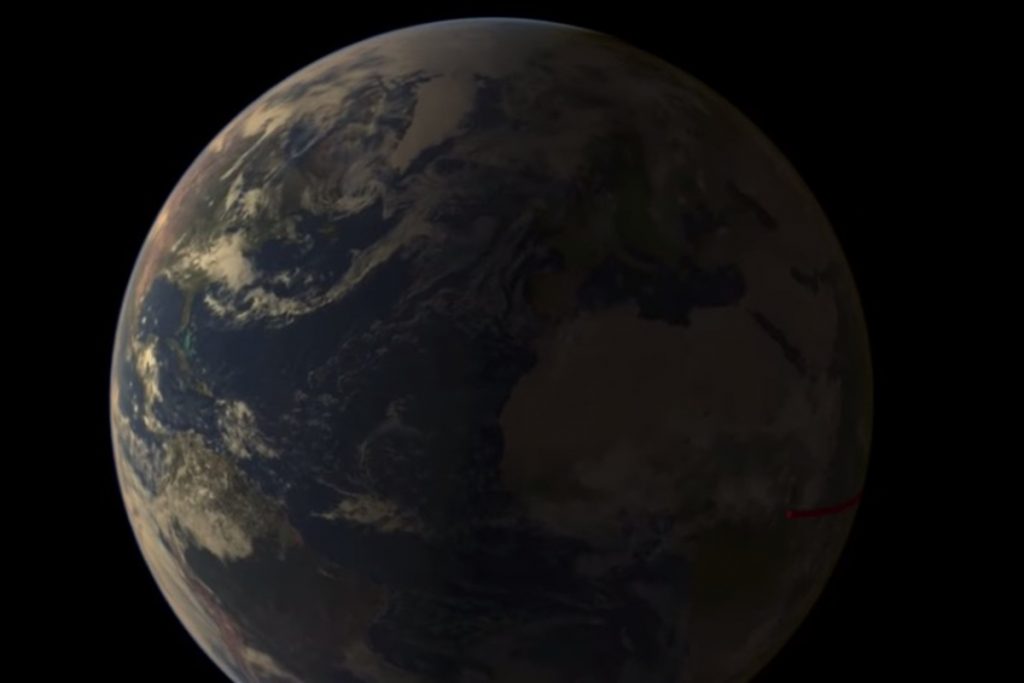People often think that we’d have a lot of advanced notice before a big asteroid could get near the planet. But it turns out, the imagined advanced notice isn’t quite as advanced as we’d like to think. Just this past July, an asteroid showed up near the Earth with just a week’s notice. But scientists are already looking ahead to another asteroid’s approach in 2029. Here are some asteroid updates for August 2019.
See the latest asteroid updates for August 2019. Share on XWe Had an Unexpected Asteroid Show Up in Late July
An asteroid passed very close to the Earth in late July – just 1/5 the distance from us to the moon – and scientists didn’t identify it until a week before it passed. With that kind of notice, we don’t have a lot of time to put together a big “asteroid destroying” plan before one might hit.
According to Slate, Asteroid 2019 OK seemed to come “out of nowhere.” The public learned about the asteroid just a few hours before it passed. Its elliptical orbit within Venus’ orbit and around Mars meant that it wasn’t visible for long. Plus, the asteroid was only boulder-sized, so it was easier to miss. But even boulder-sized, it could still cause a lot of problems. If it crashed, the blast would be 30 times stronger than Hiroshima, Slate shared. That’s apocalyptic-level news for whatever city it hits, even if it’s not an extinction-level event.
Earth almost got hit by an asteroid yesterday. They named it ‘2019 OK’ from space
The asteroid’s minimum distance from the Earth was 0. 04818 au = 7207625.41 km. The Moon’s distance is 384472.282 km.
A Big Asteroid Hit Jupiter on August 7. Meanwhile, NASA Will Nudge an Asteroid from Its Orbit in 2022
On August 7 Jupiter got hit by something so big, we could see it from Earth. It appears to be a large asteroid.
Another impact on Jupiter today (2019-08-07 at 04:07 UTC)! A bolide (meteor) and not likely to leave dark debris like SL9 did 25 years ago. Congrats to Ethan Chappel (@ChappelAstro) on this discovery and H/T to Damian Peach (@peachastro) for the report https://t.co/lj38ncBZuI
— Dr Heidi B. Hammel (@hbhammel) August 7, 2019
So that’s “kind of close” but not too close for comfort.
NASA is working on a plan to deal with asteroids, it just could be a while before the plan is ready.
NASA will experiment with nudging an asteroid slightly out of its orbit in 2022, Business Insider shared. This is pretty much the first step in knocking an asteroid out of orbit if one is heading toward Earth. Of course, we’re a long way from accomplishing that, but it’s a first step. They’re aiming for Didymoon, a moon asteroid that’s part of a double asteroid system.
The Big Asteroid to Watch Is Coming in 2029
In 10 years – on April 13, 2029 – an asteroid will come near Earth that NASA has dubbed “God of Chaos” aka Apophis. The asteroid is 340 meters across. It will be 19,000 miles away, which is far enough to be safe but also as close as some spacecraft come to the Earth, Independent reported. This will be a great opportunity for scientists to observe a large asteroid relatively up close and it will even be visible to the naked eye. Apparently, this won’t be Apophis’s last closeup, as it will come around again in 2036.
Here’s How to Stay Updated on Asteroids
Now here’s some good news. You might not get a lot of advanced notice about the rare asteroids like Asteroid 2019 OK. But you can sign up for daily alerts when an asteroid comes near the Earth. Called Daily Minor Planet, this new alert service will send you an email every day, letting you know if there’s a nearby asteroid flyby. The service is a partnership between the Minor Planet Center and the Oracle Corporation. You can sign up for the daily asteroid alerts at this link. They’re having a few issues at the time of publication, but they should be back up and running soon.
You can also get updates about asteroids by following Asteroid Watch on Twitter here.
Very small asteroid 2019 MO, measuring just 4 meters, impacted the atmosphere over the Caribbean on June 22. Although too small to pose a threat, NASA assets were able to detect it and flag it in advance. https://t.co/Qu9BZHsJuN
— Asteroid Watch (@AsteroidWatch) June 25, 2019
They share some interesting stats and observations on the Asteroid Watch Twitter account, so it’s definitely worth following.
Want to stay updated on all things post-apocalyptic? Join our email list here. Want to write for us? Send us a tweet.


